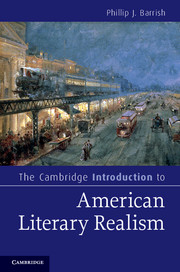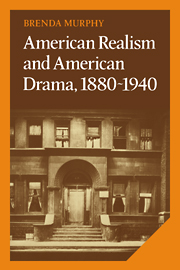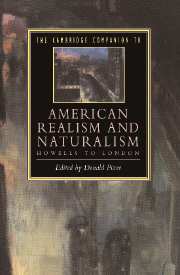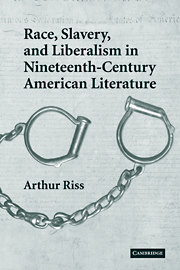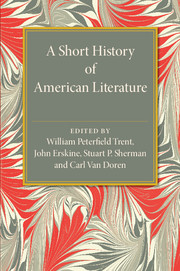The Ferment of Realism
American Literature 1884–1919
£36.99
- Author: Warner Berthoff
- Date Published: September 1981
- availability: Available
- format: Paperback
- isbn: 9780521284356
£
36.99
Paperback
Looking for an inspection copy?
This title is not currently available on inspection
-
This book traces the central developments in American literature between and 1919. It opens with an account of the consolidation of realism as the dominant standard of critical value and brings the reader forward to the moment, at the end of World War I, when American writers began to take a recognized place among the masters of literary modernism. The ascendancy of the novel as the principal genre of the realists is presented against a broader cultural and historical background. Professor Berthoff reviews and evaluates American fiction from the time when Howells, Twain, and Henry James were still under attack by old-school idealizers, to the emergence of a new critical and testamentary realism with Crane, Dreiser, and Gertrude Stein. He shows how the writers under discussion reacted to the work of their predecessors and contemporaries, to foreign literary currents, innovations in journalism, contemporary events, and to changing mores. Using specific examples and direct quotations, Professor Berthoff appraises the strengths and limitations of each. All his discussions, even of secondary writers, are rounded out with a wide range of critical opinion. This approach gives depth and objectivity to the examination of a turbulent and vigorously creative age in American letters. During this period the writings of Henry Adams, Henry George, William James, Thorstein Veblen, and others, though primarily concerned with disciplined reflective inquiry, were part of the essential imaginative effort of realism. The master works of this highly literate group of speculative thinkers had a profound effect on the literature of the era and on the era directly following. Important figures discussed in the final chapters of this history include Willa Cather, Edith Wharton, Frank Norris, Vachel Lindsay and Jack London. Professor Berthoff notes that there is no manifesto or turning point in literature exactly comparable to the turning point in American art created by the Armory Show of 1913. But the emergence in a single generation of Robinson, Frost, Stevens, Pound, Anderson, Stein, O'Neill, and Eliot was to have immense influence, not only in America but throughout the Western world. The thirty-five years that this book spans are among the most important and interesting in the history of American letters. The main currents traced are still vital, and the principal writers of this period are as important now as they were then.
Customer reviews
Not yet reviewed
Be the first to review
Review was not posted due to profanity
×Product details
- Date Published: September 1981
- format: Paperback
- isbn: 9780521284356
- length: 356 pages
- dimensions: 216 x 138 x 20 mm
- weight: 0.471kg
- availability: Available
Table of Contents
Preface to the first edition
Preface to the 1981 reissue
1. American realism: a grammar of motives
2. Novels and novelists: the era of Howells and James
3. Literature of argument
4. Lives of the Americans: the class of the '70s
5. Renaissance:
1912 and after
Select bibliography
Index of names and titles
Index of selected topics.
Sorry, this resource is locked
Please register or sign in to request access. If you are having problems accessing these resources please email [email protected]
Register Sign in» Proceed
You are now leaving the Cambridge University Press website. Your eBook purchase and download will be completed by our partner www.ebooks.com. Please see the permission section of the www.ebooks.com catalogue page for details of the print & copy limits on our eBooks.
Continue ×Are you sure you want to delete your account?
This cannot be undone.
Thank you for your feedback which will help us improve our service.
If you requested a response, we will make sure to get back to you shortly.
×

